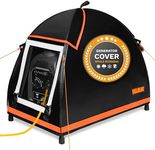Buying Guide for the Best Small Generators
When choosing a small generator, it's important to consider your specific needs and how you plan to use the generator. Small generators are great for providing power during outages, for outdoor activities like camping, or for use on job sites. Understanding the key specifications will help you select the best generator for your requirements.Power Output (Wattage)Power output, measured in watts, indicates how much electricity the generator can produce. This is crucial because it determines what and how many devices you can power simultaneously. Small generators typically range from 1,000 to 4,000 watts. For light use, such as charging phones or running small appliances, 1,000-2,000 watts is sufficient. For more demanding tasks, like running power tools or multiple appliances, you might need 3,000-4,000 watts. Assess your power needs by listing the devices you plan to use and their wattage requirements.
Fuel TypeGenerators can run on various fuels, including gasoline, propane, and diesel. Gasoline is the most common and widely available, making it convenient for most users. Propane is cleaner burning and can be stored indefinitely, but it requires a separate tank. Diesel generators are more fuel-efficient and durable but are typically louder and more expensive. Choose a fuel type based on availability, storage, and your preference for convenience or environmental impact.
Run TimeRun time refers to how long the generator can operate on a full tank of fuel. This is important for planning how often you'll need to refuel, especially during extended use. Small generators usually offer run times between 5 to 12 hours. If you need a generator for overnight use or long periods without refueling, look for models with longer run times. Consider your typical usage scenarios to determine the ideal run time for your needs.
PortabilityPortability is a key factor for small generators, especially if you plan to move it frequently or use it in different locations. This includes the generator's weight, size, and whether it has wheels or handles for easy transport. Lightweight models (under 50 pounds) are ideal for camping or occasional use, while heavier models (50-100 pounds) with wheels are better for job sites or home backup. Think about how and where you'll be using the generator to decide on the right level of portability.
Noise LevelNoise level, measured in decibels (dB), indicates how loud the generator will be during operation. This is important for user comfort and compliance with noise regulations, especially in residential areas or campsites. Small generators typically range from 50 to 70 dB. For quiet environments, look for models under 60 dB. If noise is less of a concern, higher noise levels might be acceptable. Consider where you'll be using the generator and how much noise is tolerable.
Starting MechanismThe starting mechanism determines how you start the generator. Common options include recoil (pull-start), electric start, and remote start. Recoil start is manual and requires physical effort, but it's reliable and doesn't depend on a battery. Electric start is more convenient, using a push-button or key, but it requires a charged battery. Remote start allows you to start the generator from a distance, adding convenience. Choose based on your preference for ease of use and physical capability.
Outlets and ConnectivityThe number and type of outlets determine what devices you can connect to the generator. Common outlets include standard 120V household outlets, 240V outlets for larger appliances, and USB ports for charging electronics. Some generators also offer RV-ready outlets or parallel capability to connect two generators for more power. Consider the devices you plan to power and ensure the generator has the appropriate outlets and connectivity options.
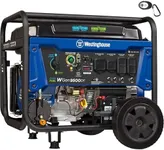
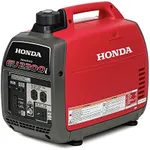
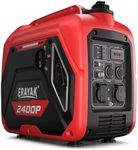
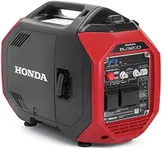
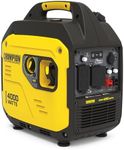

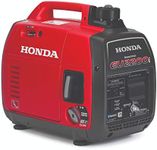

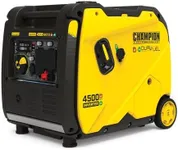




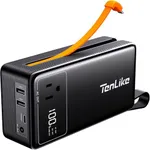

![[Upgraded Version] ALLPOWERS S2000 Portable Power Station 2000W (Peak 4000W) MPPT Solar Generator 1500Wh Backup Battery with 4 AC Outlets for Outdoor Camping RV Emergency Off-Grid](https://images-proxy.bestreviews.guide/RKciUpoEpXP6FG5NDwMBUKV-gKk=/0x150/https://m.media-amazon.com/images/I/51n9OTptdIL._AC_CX679_.jpg)

